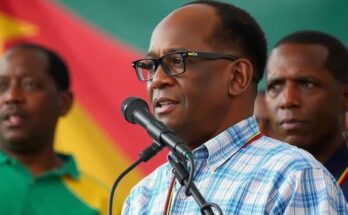The October Surprise refers to unexpected events that occur late in a U.S. presidential campaign, capable of significantly impacting the election outcome. Historically exemplified by Nixon’s 1972 announcement of prospective peace in Vietnam, such surprises can encompass diplomatic incidents, political scandals, and major domestic news. In recent elections, particularly 2016, various high-stakes events highlighted the phenomenon’s potential for influence, although the impact appears to be waning in the context of evolving voter behaviors and early voting trends.
The phenomenon known as the “October Surprise” refers to unexpected events occurring in the final weeks of a U.S. presidential election campaign, which can dramatically alter the trajectory of the race. Over the past five decades, numerous such surprises have influenced electoral outcomes. One notable instance occurred on October 26, 1972, when President Richard Nixon’s advisor, Henry Kissinger, announced that peace was ‘at hand’ in the Vietnam War, bolstering Nixon’s campaign just before the election. Although Nixon’s victory appeared assured, this announcement contributed significantly to his landslide win by 18 million votes. Oscar Winberg, a political expert, categorizes these surprises into three main types: diplomatic events, political scandals revealed through leaks, and major domestic news events such as catastrophes or investigations. Noteworthy examples include the 2016 election where October witnessed four significant events impacting the Hillary Clinton and Donald Trump race. The New York Times published Trump’s 1995 tax return, revealing considerable financial losses, followed by WikiLeaks’ release of Clinton’s campaign emails, which divulged controversial statements she made during paid speeches. The release of a recording of Trump’s lewd comments further destabilized the race, punctuated by the FBI’s announcement to resume its investigation into Clinton’s email practices just days before the election. Such happenings are perceived to have critically influenced voter perception and ultimately the election outcome. Despite the potential impact, not all October Surprises have swayed results significantly, and over time, candidates have developed strategies to mitigate their effects, including preemptive research and crisis management plans. Furthermore, Winberg observes that these surprises are less potent now due to decreased numbers of undecided voters and the increasing prevalence of early voting, particularly amplified in the wake of the COVID-19 pandemic. Thus, while October Surprises remain a factor in U.S. elections, their influence is less pronounced than it once was.
The “October Surprise” phenomenon encapsulates last-minute developments in U.S. presidential elections that have the potential to alter voter behavior and electoral outcomes. The term gained popularity in the early 1980s, with the memorable example from 1972 setting a precedent. Throughout the years, various surprises, ranging from political scandals to international diplomatic shifts, have demonstrated the unpredictable nature of election seasons. Scholars and analysts have noted that as both political landscapes and voting behaviors evolve, the effects of these surprises may also change, leading to an ongoing evaluation of their significance in modern politics.
In conclusion, the concept of the October Surprise represents a crucial, albeit evolving, aspect of U.S. presidential elections, with the power to shift voter sentiments in critical moments. Historical examples highlight how tactical announcements and revelations can significantly sway results. However, the changing dynamics of American politics, including increased early voting and reduced undecided populations, suggest that the overall influence of such surprises may be diminishing, requiring continuous adaptation from candidates and their campaigns.
Original Source: www.france24.com




